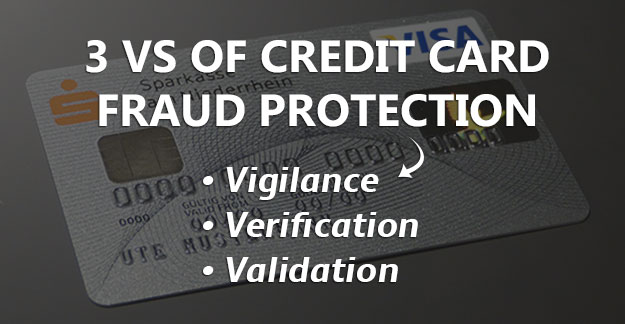
With every convenience, come its risks. With every opportunity to save or make more money, comes a chance that you might lose it all. Whether or not you are risk averse, you would like to protect yourself from the most obvious pitfalls. And this is quite easy when it comes to protecting your online business from credit card frauds.
While no system is 100% hacker-proof, you can do some basics for credit card fraud detection. This might throw up a few false negatives leading to some lost orders but, it might be a risk worth taking compared to the hassle and stress of fraudulent credit card transactions.
 Vigilance: Keep your eyes and ears open
Vigilance: Keep your eyes and ears open
Suspicious orders are a matter of judgement and depend on the nature of your business. However, there are some basic tenets. Orders that are way above your business’ average business order should raise a red signal. Similarly, if such an order is placed with expedited delivery, certainly requires you to put your Sherlock hat on and investigate further. Similarly, for large orders if the billing address is different from the delivery address, it should be flagged. These measures would be over and above the regular verification and validation process you have in place which might lead to rejecting the order, even if it is erring on the side of caution. Better safe than sorry.
Implementing and keeping a fraud detection tool updated for your online shopping cart is the basic requirement of credit card fraud prevention. The heart of the matter is that for every security patch implemented, there will be a loophole that hackers will try to attack. Keeping the relevant software up-to-date is necessary even if not sufficient to avoid online credit card fraud.
 Verify: Get all the extra information you can
Verify: Get all the extra information you can
Sure, for every second the customer spends on phone/buying the product, could result in a loss of sale. However, if it is a fraudulent purchase, the buyer might be dissuaded with every extra information that they have to lie about. Not because of their conscience, as much because it starts getting uncomfortable.
Credit card billing address verification and CCV number at the back of the credit card is one of the basic requirements. Both require a lot of pre-meditation by the criminal, including actually physically stealing the card. In the latter case, it is very likely that the real credit card holder has already lodged a lost card complaint and the card is blocked by the company itself.
When the billing and ship-to addresses are different, request for phone numbers of both addresses and where necessary make validation calls to both the numbers. If the credit card owner confirms the order, then you can ship it, else not.
 Validate: The necessary evil
Validate: The necessary evil
It is cumbersome, but it needs to be done. Especially for smaller businesses which cannot run the risk of a credit card fraud. Ask for a copy of the credit card (both back and front) and a Photo ID. Maybe you can do this only for the first order and have the site’s software keep it in memory for future orders so that the customer is not hassled every time they place an order. You could mitigate some of the customer’s annoyance by letting them know that it is a one-time thing and that you are doing this to make sure their credit card is not being misused.
In case, of a suspicious sale, as found under your regular vigilance rules, call the customer using the phone number provided. Speak to the card-holder and ask for further information about the purchase they made, their address, 16-digit card number and so on. If you can’t reach the card-holder, don’t ship the merchandise. If it is a fraudulent purchase, most likely the fraudster hasn’t given you their real number.
In some cases, you can have the credit card company make the call and they can actually ask about previous charges made on the card for validation purposes.
If however, despite all these precautions, you end up with a fraudulent credit card purchase, take immediate steps to mitigate your risk. Try to get hold of the shipping agent and stop the shipment; report the fraud to the police and the credit card company. Do understand that in most cases, the credit card company is not obliged to pay for your loss. However, they should be notified if you want any chance at a further investigation.
Even so, you want to balance between being paranoid and pushing away possible customers and being careful. It is easier said than done, yet if you strike the right balance, you will end up making more business while avoiding extra costs at the hands of fraudsters.


